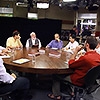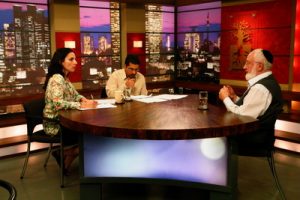What Is The Difference Between Anti-Semitism And Anti-Israelism?
 From My Facebook Page Michael Laitman 5/2/19
From My Facebook Page Michael Laitman 5/2/19
What’s the difference between anti-Semitism and anti-Israelism? Kabbalist Dr. Michael Laitman explains that there is a difference, even though the basis is the same.
Since Jews bear inside them the method for the world’s correction, and the more the world deteriorates, the more necessary this method becomes, the world starts needing this method more and more. There is a certain subconscious feeling that this method exists in the Jewish people, and therefore there is hatred toward the Jewish people because they prevent the world from having a good future. What exactly is the good future and what exactly should the Jews do? They don’t know.
Nature, however, is giving everyone besides Jews a feeling that the Jews have something that they’re not giving the world, and therefore, the world is suffering.
Usually, during the 2,000 years of exile, it was directed at the Jewish people in a more or less revealed way, and nowadays, after the establishment of the Jewish State, the State of Israel, then a part of anti-Semitism has become anti-Israelism, which is against the State itself.
Therefore, anti-Semitism has several faces. There are some who feel more anti-Semitic, and others who feel more anti-Israeli, but both stem from the same root, and undoubtedly, there is something about the Jewish people that they have to give the world. Jews themselves don’t know what it is, besides the Kabbalists among them who bear the method of correction. Therefore, if the Jewish people will reveal this method to humanity, then both anti-Semitism and anti-Israelism will disappear from the world.









